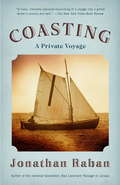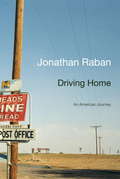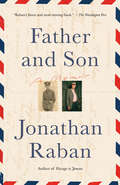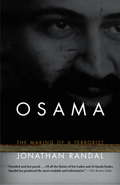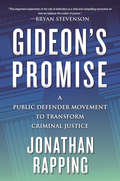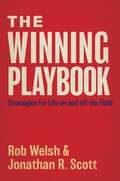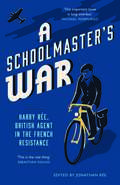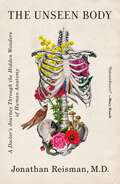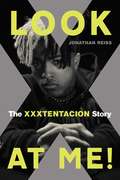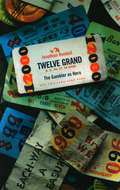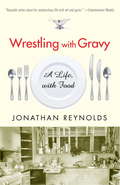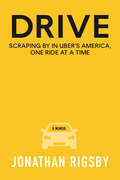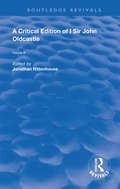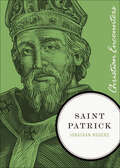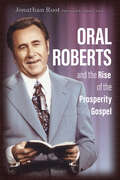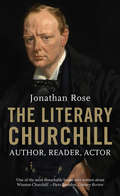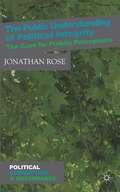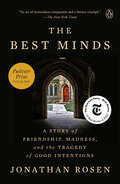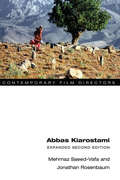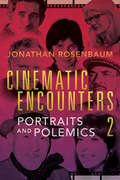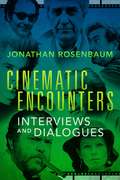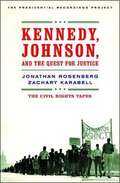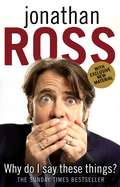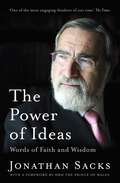- Table View
- List View
Coasting: A Private Voyage (Vintage Departures)
by Jonathan RabanFrom the national bestselling, National Book Critics Circle Award-winning author of Bad Land comes &“a lively, intensely personal recounting of a voyage into a gifted writer's country and self&” (The New York Times Book Review).Put Jonathan Raban on a boat and the results will be fascinating, and never more so than when he&’s sailing around the serpentine, 2,000-mile coast of his native England. In this acutely perceived and beautifully written book, the bestselling author of Bad Land turns that voyage–which coincided with the Falklands war of 1982-into an occasion for meditations on his country, his childhood, and the elusive notion of home.Whether he&’s chatting with bored tax exiles on the Isle of Man, wrestling down a mainsail during a titanic gale, or crashing a Scottish house party where the kilted guests turn out to be Americans, Raban is alert to the slightest nuance of meaning. One can read Coasting for his precise naturalistic descriptions or his mordant comments on the new England, where the principal industry seems to be the marketing of Englishness. But one always reads it with pleasure.
Driving Home: An American Journey
by Jonathan RabanFor more than thirty years, Jonathan Raban has written with infectious fascination about people and places in transition or on the margins, about journeys undertaken and destinations never quite reached, and, as an Englishman transplanted in Seattle, about what it means to feel rooted in America. Spanning two decades, Driving Home charts a course through the Pacific Northwest, American history, and current events as witnessed by a super-sensitive, all-seeing eye. Raban spots things we might otherwise miss; he calls up the apt metaphors that transform things into phenomena. He is one of our most gifted observers" (Newsday). Stops en route include a Missoula bar, a Tea Party convention in Nashville hosted by Sarah Palin, the Mississippi in full flood, a trip to Hawaii with his daughter, a steelhead river in the Cascades, and the hidden corners of his adopted hometown, Seattle. He deftly explores public and personal spaces, poetry and politics, geography and catastrophe, art and economy, and the shifts in various arenas that define our society. Whether the topic is Robert Lowell or Barack Obama, or how various painters, explorers, and homesteaders have engaged with our mythical and actual landscape, he has an outsider's eye for the absurd, and his tone is intimate, never nostalgic, and always fresh. Frank, witty, and provocative, Driving Home is part essay collection, part diary--and irresistibly insightful about America's character, contradictions, and idiosyncrasies.
Father and Son: A Memoir
by Jonathan RabanA NEW YORKER BEST BOOK OF THE YEAR • A poignant memoir of love, trauma, and recovery after a life-changing stroke, twinned to a powerful account of his father's experience in World War II, by a winner of the National Book Critics Circle Award.&“A beautiful, compelling memoir...Raban&’s final work is a gorgeous achievement.&” —Ian McEwan, New York Times best-selling author of Lessons In June 2011, just days before his sixty-ninth birthday, Jonathan Raban was sitting down to dinner with his daughter when he found he couldn&’t move his knife to his plate. Later that night, at the hospital, doctors confirmed what all had suspected: that he had suffered a massive hemorrhagic stroke, paralyzing the right side of his body. Once he became stable, Raban embarked on an extended stay at a rehabilitation center, where he became acquainted with, and struggled to accept, the limitations of his new body—learning again how to walk and climb stairs, attempting to bathe and dress himself, and rethinking how to write and even read.Woven into these pages is an account of a second battle, one that his own father faced in the trenches during World War II. With intimate letters that his parents exchanged at the time, Raban places the budding love of two young people within the tumultuous landscape of the war&’s various fronts, from the munition-strewn beaches of Dunkirk to blood-soaked streets of Anzio. Moving between narratives, his and theirs, Raban artfully explores the human capacity to adapt to trauma, as well as the warmth, strength, and humor that persist despite it. The result is Father and Son, a powerful story of mourning, but also one of resilience.
Osama
by Jonathan RandalHow is it possible for one middle-aged Saudi millionaire to threaten the world’s only superpower? This is the question at the center of Jonathan Randal’s riveting, timely account of Osama bin Laden’s role in the rise of terrorism in the Middle East. Randal–a journalist whose experience of the Middle East spans the past forty years–makes clear how Osama’s life epitomizes the fatal collision between twenty-first-century Islam and the West, and he describes the course of Osama’s estrangement from both the West and the Saudi petro-monarchy of which his family is a part. He examines Osama’s terrorist activities before September 11, 2001, and shows us how, after the attack on the World Trade Center, Osama presented the West with something new in the annals of contemporary terrorism: an independently wealthy entrepreneur with a seemingly worldwide following ready to do his bidding. Randal explores the possibility that Osama offered the Saudis his Al-Qaeda forces to drive Saddam Hussein out of Kuwait in 1991; he traces the current sources of Osama’s money; and he tells us why the Iraq war has played into the hands of the terrorists. With his long-maintained sources in the Middle East and his intimate understanding of the region, Randal gives us a clearer explanation than any we have had of the whys and wherefores of the world’s most prominent and feared terrorist.
Gideon's Promise: A Public Defender Movement to Transform Criminal Justice
by Jonathan RappingA blueprint for criminal justice reform that puts a new generation of public defenders front and center in the fight for legal equalityCombining wisdom drawn from over a dozen years as a public defender and cutting-edge research in the fields of organizational and cultural psychology, Jonathan Rapping reveals the pervasive issues inherent in our current system of public defense, and lays the foundation for how model public defense programs should work to end mass incarceration. Public defenders represent over eighty percent of those who interact with the court system, a disproportionate number of whom are poor, non-white citizens who rely on them to navigate the law on their behalf. More often than not, even the most well-meaning of those defenders are over-worked, under-funded, and incentivized to put the interests of judges and politicians above those of their clients in a culture that beats the passion out of talented, driven advocates, and has led to an embarrassingly low standard of justice for those who depend on the promises of Gideon v. Wainwright.However, rather than arguing for a change in rules that govern the actions of lawyers, judges, and other advocates, Rapping proposes a radical cultural shift to a "fiercely client-based ethos" driven by values-based recruitment and training, awakening defenders to their role in upholding an unjust status quo, and a renewed pride in the essential role of moral lawyering in a democratic society.Through the story of founding Gideon's Promise and anecdotes of his time as a defender and teacher, Rapping reanimates the possibility of public defenders serving as a radical bulwark against government oppression and a megaphone to amplify the voices of those they serve.
The Winning Playbook: Strategies For Life On And Off The Field
by Jonathan Ray Scott Rob Welsh"...a must-read for athletes and entrepreneurs alike." — Mike Magolnick 5x Author, CEO, Influencer "A well-written, practical personal finance book..." — Kirkus ReviewsIt&’s time to take your financial game to the next level. A must-have for athletes, entrepreneurs, and anyone determined to take control of their financial and personal well-being, The Winning Playbook is the essential guide to transforming your career into a money-making machine and becoming the CEO of your own legacy. We&’ve all heard the stories—a professional athlete signs for $2 million a year and the next thing we know he&’s working in the off-season to make ends meet. Financial empowerment expert Rob Welsh and former NFL offensive tackle Jonathan R. Scott have dedicated themselves to successfully coaching athletes of all levels to make their money work for them. Yet, professional athletes aren&’t alone in their financial trials—too few of us understand how to make the most of the rewards of our hard work and what we must know to get what we want from life. For the first time in The Winning Playbook, Rob Welsh and Jonathan R. Scott reveal the keys to unlocking your ability to learn and steer the direction of your own life, including how to: · Understand Your Paycheck and How to Keep It · Become Financially Empowered · Hone a Business Mindset · Win When Life Happens · Build Your Team · Learn the Rules of Money · Access Hidden Tax and Financial Strategies · How to Guide Student-Athletes to Prepare for their Financial Future Find your purpose beyond the playing field or office and set yourself up for a rewarding personal and financial future. &“...should be required reading for all athletes and families transitioning to professional sports.&”— Mack Brown, Head Football Coach of The University of North Carolina, College Football Hall of Fame Inductee
A Schoolmaster's War: Harry Ree - A British Agent in the French Resistance
by Jonathan ReeThe wartime adventures of the legendary SOE agent Harry Rée, told in his own words A school teacher at the start of the war, Harry Rée renounced his former pacifism with the fall of France in 1940. He was deployed into a secret branch of the British army and parachuted into central France in April 1943. Harry showed a particular talent for winning the confidence of local resisters, and guided them in a series of dramatic sabotage operations, before getting into a hand-to-hand fight with an armed German officer, from which he was lucky to escape. This might seem like a romantic story of heroism and derring-do, but Harry Rée's own war writings, superbly edited and contextualized by his son, the philosopher Jonathan Rée, are far more nuanced, shot through with doubts, regrets, and grief.
The Unseen Body: A Doctor's Journey Through the Hidden Wonders of Human Anatomy
by Jonathan Reisman"A fascinating, lyrical book... Reisman's experiences in other cultures bring a richness and depth to The Unseen Body. The way he thinks about the body and medicine—the rivers and tributaries, the flowing and unclogging, the top-down organization of the brain—is extraordinary!"—Mary RoachIn this fascinating journey through the human body and across the globe, Dr. Reisman weaves together stories about our insides with a unique perspective on life, culture, and the natural world.Jonathan Reisman, M.D.—a physician, adventure traveler and naturalist—brings readers on an odyssey navigating our insides like an explorer discovering a new world with The Unseen Body. With unique insight, Reisman shows us how understanding mountain watersheds helps to diagnose heart attacks, how the body is made mostly of mucus, not water, and how urine carries within it a tale of humanity’s origins.Through his offbeat adventures in healthcare and travel, Reisman discovers new perspectives on the body: a trip to the Alaskan Arctic reveals that fat is not the enemy, but the hero; a stint in the Himalayas uncovers the boundary where the brain ends and the mind begins; and eating a sheep’s head in Iceland offers a lesson in empathy. By relating rich experiences in far-flung lands and among unique cultures back to the body’s inner workings, he shows how our organs live inextricably intertwined lives—an internal ecosystem reflecting the natural world around us.Reisman offers a new and deeply moving perspective, and helps us make sense of our bodies and how they work in a way readers have never before imagined.
Look at Me!: The XXXTENTACION Story
by Jonathan ReissA compelling biography of SoundCloud sensation and rising star XXXTENTACION -- from his candid songwriting and connection with fans to his tragic death.At the age of twenty, rapper Jahseh Dwayne Onfroy -- aka XXXTENTACION -- was gunned down during an attempted robbery on the streets of Deerfield Beach, FL, mere months after signing a $10 million record deal with Empire Music. A rising star in the world of SoundCloud rap, XXXTENTACION achieved stellar levels of success without the benefit of a major label or radio airtime, and flourished via his passionate and unfettered connection to his fans.In Look at Me!, journalist Jonathan Reiss charts the tumultuous life and unguarded songwriting of the SoundCloud sensation. Unlike most rap on the platform, XXXTENTACION's music didn't dwell on money, partying, and getting high. He wrote about depression, suicide, and other mental health issues, topics that led to an outpouring of posthumous appreciation from his devoted fanbase. It was XXXTENTACION's vulnerability that helped him stand apart from artists obsessed with being successful and "cool." Yet these insecurities also stemmed from -- and contributed to -- his fair share of troubles, including repeated run-ins with the law during in his teen years, a disturbing proclivity towards violence, and a prison sentence that overlapped with the release of his first single.Through the memories of the people who knew him best, Look at Me! maps out the true story of an unlikely cultural icon and elucidates what it was about him that touched the post-millennial generation so deeply.
Twelve Grand
by Jonathan Rendall'Hello, is that Jonathan Rendall?' 'Speaking.' 'My name's Rachel. I'm calling from Yellow Jersey Press and I have a proposal for you. I'm looking for someone to give £12,000 to but the catch is they have to spend it all on gambling - horses, the dogs, casinos, boxing, golf, footie, that sort of thing - and then write a book about it. Any profits made are entirely that person's but if they lose it all I still want my book. It's high risk but without wanting to assume too much, I've heard a bit about you and somehow I thought it may appeal. Think about it - you'd have the opportunity to lay some serious bets offering serious returns, you could play hard ball in poker games for once, even go to Vegas and, as I said, those winnings are yours to blow in whatever way you wish'. 'When do I start?
Wrestling with Gravy: A Life, with Food
by Jonathan ReynoldsIn this inviting feast of a memoir, former New York Times food columnist Jonathan Reynolds dishes up a life that is by turns hilarious and tender--and seasoned with the zest of cooking, family, eating, and lounging around various tables in tryptophanic stupors. Growing up on Manhattan's Upper East Side, a child of material privilege and emotionally distant parents, young Jonathan discovers that food serves as a catalyst for adventure, a respite from loneliness, and a fail-safe way to navigate his often eccentric surroundings. When Jonathan is thirteen, his uncle Bus, a surrogate father of sorts, treats him to his first fine dining experience, at the old Westbury Hotel on Madison Avenue. The suspicious teen orders pheasant under glass--and from the moment the glass dome is lifted, Reynolds's culinary curiosity takes off. Always absorbing, often hilarious, and surprisingly affecting, Wrestling with Gravy is full of wonderful characters and anecdotes. With droll self-effacement and a sharp eye for detail, Reynolds relives the time that his own father made a move on his girlfriend during a meal at Maxim's in Paris; extols the surprising virtues of baseball stadium cuisine (with the exception of New York); and recounts how he once whipped up a seductive meal for a woman, only to have her excuse herself after dessert because she had another date lined up, buffet-style, later in the evening. Even on a glum Christmas day in New York City, or at the deathbed of his dear cousin the actress Lee Remick, food offers solace and a cathartic sense of home. Rare among culinary memoirs, Wrestling with Gravy speaks eloquently about food without affectation, while striking a note of cosmic comedy and honest regret. And of course, the recipes are all here, too--from a perfect water-smoked Thanksgiving turkey to a barbecued Chinese duck, from an old-fashioned malted to Flaming Babas au Armagnac. Like a truly great meal, Wrestling with Gravy will entertain and satisfy any reader's appetite. For five years, Jonathan Reynolds brought oxygen to the food page of The New York Times Magazine. He was smart and buoyant as he rummaged around in memory's trunk for food-worthy anecdotes to chew upon. The pieces were highly personal, showcasing his quirks and irreverence as much as any foodstuff. His theatrics (fittingly -- Reynolds is a seasoned actor and playwright) were endearing; no surprise, then, when readers took personal interest in his passage, with its hints of darkness lurking amid the drollery. Reynolds' memoir, "Wrestling With Gravy," is as consistently entertaining, in a grim way, as his columns, unveiling the many familial, romantic and professional land mines he discovered -- too late! -- under nearly every step he took, each fitted with emblematic recipes, balms for his wounds: "Food is controllable, while most of life isn't." His father was absent, off performing "entrepreneurial calisthenics"; his mother was lost to depression. There were boarding school expulsions, and a jail stay prompted by his youthful infatuation with actress Kim Novak. Hollywood was a bitter pill -- "The stars sip their strawsful of sugarless broth fumes and vapor of fetal watercress leaf helicoptered to their trailers" -- part and parcel of his "insanely and unrealistically ambitious" screenwriting career. Friends and family died; his marriage went south. The gloom is beveled, thankfully, by his children, a guiding-star uncle, a second marriage, sweet playwriting success, all artfully etched with a hand as graceful as his progress clubfooted. (Said clubfoot precedes him during an ill-advised, weirdly nescient chapter analyzing American politics, but then half of Reynolds' charm is his flaws.)
Drive: Scraping By in Uber's America, One Ride at a Time
by Jonathan RigsbyOne father, 3 years, and thousands of ridesPoverty, By America meets Maid in this dad&’s darkly humorous yet humanizing story of working long hours and late nights behind the wheel as a rideshare driverJonathan Rigsby spends his days as a crime intelligence analyst and his nights as an Uber driver. Reeling from his divorce and struggling to pay rent while caring for his autistic son, Rigsby became a rideshare driver, joining the millions of people with a side hustle just to make ends meet.With a compelling blend of honesty and sardonic wit, Rigsby invites readers into his car to reveal the harsh reality of gig work for so many: grueling hours, living paycheck to paycheck, and hoping to avoid disaster long enough to prepare for the next bill. Along the way, he showcases the humor and humanity in the private moments of vulnerability that happen when people are left alone with a stranger—from the amusing tales of drunk college students to a passenger getting sick on the dashboard, a mother expressing distress about her son&’s addiction, and a violent encounter on the job.Unflinching and raw, Drive exposes an ugly truth that hides in the gaudy background of the American dream: you can do everything right and still fail. Buckle up.
A Critical Edition of I SIr John Oldcastle (Routledge Revivals)
by Jonathan RittenhouseOriginally published in 1984, this book contains the full text of I, Sir John Oldcastle, alongside critical and textual notes, including an examination of the authors and the theatrical background and assessment. For such an obscure play, I Sir John Oldcastle has had a varied printing history and has been printed eighteen times since its original 1600 publication date. The text here is a modern-spelling version and archaic forms are only presered where rhyme or metre requires them, or when modernization obscres rather than clarifies the required sense of the word.
Saint Patrick (Christian Encounters)
by Jonathan RogersIn this Christian Encounter Series biography, author Jonathan Rogers explores the life of Saint Patrick: slave, shepherd, and courageous missionary.Patrick was born the son of privilege and position, but he was only a teenager when he was taken from his home in Roman Britain by marauders and sold into slavery in Ireland. Despite his terrible circumstances, young Patrick did not give way to despair. As he worked as a shepherd in the pastures of his new owner, he kindled the faith he&’d inherited from his family and eventually escaped to freedom. Then, after returning home, he experienced a dream that changed everything: God wanted him to go back and take the Gospel to the country of his captors.Patrick heeded the call. Both humble enough to minister to beggars and bold enough to confront kings, Patrick led the Irish through his brave and compassionate service into the Christian faith and baptized thousands. Separating the many myths from the facts, Jonathan Rogers weaves a wonder-filled tale of courage, barbarism, betrayal, and hope in God&’s unceasing faithfulness. Countless miracles have been attributed to Saint Patrick, but perhaps one of the simplest and most amazing is that he won the hearts and souls of the same fierce and indomitable people who had enslaved him.
Oral Roberts and the Rise of the Prosperity Gospel (Library of Religious Biography (LRB))
by Jonathan RootIn 1946, God gave Oral Roberts a new Buick. And this just one of many miracles the young, broke preacher learned to expect, as Oral Roberts would go on to build an evangelistic ministry worth millions of dollars, a medical complex, and a university. How do we interpret the life of a man who seemed to combine rampant consumerist excess with a sincere devotion to the gospel?Seeking to answer this question, Jonathan Root weaves together accounts of Oral Roberts&’s life in a balanced and engaging narrative. This fresh biography covers Roberts&’s early life during the Great Depression in Oklahoma, his family&’s financial struggles during his early career as a Pentecostal preacher, his healing ministry&’s explosive growth in popularity via the new media of radio and television, and his empire&’s eventual collapse. Root pays special attention to how Roberts introduced the &“prosperity gospel&” to American Protestants with his affirmation that God intends his followers to be both spiritually and physically fulfilled.Root&’s engaging narration looks to primary sources on Roberts&’s life as well as the mythologized stories he told years later. The man who emerges is both deeply flawed and entirely earnest in his devotion to Christ. Oral Roberts and the Rise of the Prosperity Gospel will be an absorbing read for all those interested in American religious history and one of its most colorful figures.
The Literary Churchill: Author, Reader, Actor
by Jonathan Rose&“An interesting and at times surprising account of Churchill's tastes as a reader…many of [these] nuggets will be new even to Churchill junkies.&”—TheWall Street Journal This strikingly original book introduces a Winston Churchill we haven&’t known before. Award-winning author Jonathan Rose explores Churchill&’s careers as statesman and author, revealing the profound influence of literature and theater on Churchill&’s personal, carefully composed grand story and the decisions he made throughout his political life. In this expansive literary biography, Rose provides an analysis of Churchill&’s writings and their reception (he won the Nobel Prize for Literature in 1953 and was a best-selling author), and a chronicle of his dealings with publishers, editors, literary agents, and censors. The book also identifies an array of authors who shaped Churchill&’s own writings and politics: George Bernard Shaw, H. G. Wells, Margaret Mitchell, George Orwell, Oscar Wilde, and many more. Rose investigates the effect of Churchill&’s passion for theater on his approach to reportage, memoirs, and historical works. Perhaps most remarkably, Rose reveals the unmistakable influence of Churchill&’s reading on every important episode of his public life, including his championship of social reform, plans for the Gallipoli invasion, command during the Blitz, crusade for Zionism, and efforts to prevent a nuclear arms race. Finally, Rose traces the significance of Churchill&’s writings to later generations of politicians—among them President John F. Kennedy as he struggled to extricate the U.S. from the Cuban Missile Crisis. &“Immensely enjoyable…This gracefully written book is an original and textured study of Churchill&’s imagination.&”—The Washington Post
The Public Understanding of Political Integrity
by Jonathan RoseThrough detailed analyses of major and newly available datasets, this study examines the utility of a public probity-focused approach to understanding citizen disaffection with politicians. It shows that perceptions of public probity are coherent, substantively meaningful, responsive, and, most importantly, that they do matter.
The Best Minds: A Story of Friendship, Madness, and the Tragedy of Good Intentions
by Jonathan Rosen&“Brave and nuanced…an act of tremendous compassion and a literary triumph.&” —The New York Times&“Immensely emotional and unforgettably haunting.&” —Wall Street JournalAcclaimed author Jonathan Rosen&’s haunting investigation of the forces that led his closest childhood friend, Michael Laudor, from the heights of brilliant promise to the forensic psychiatric hospital where he has lived since killing the woman he loved. A story about friendship, love, and the price of self-delusion, The Best Minds explores the ways in which we understand—and fail to understand—mental illness.When the Rosens moved to New Rochelle in 1973, Jonathan Rosen and Michael Laudor became inseparable. Both children of college professors, the boys were best friends and keen competitors, and, when they both got into Yale University, seemed set to join the American meritocratic elite.Michael blazed through college in three years, graduating summa cum laude and landing a top-flight consulting job. But all wasn&’t as it seemed. One day, Jonathan received the call: Michael had suffered a serious psychotic break and was in the locked ward of a psychiatric hospital.Diagnosed with paranoid schizophrenia, Michael was still in the hospital when he learned he'd been accepted to Yale Law School, and still battling delusions when he decided to trade his halfway house for the top law school in the country. He not only managed to graduate, but after his extraordinary story was featured in The New York Times, sold a memoir for a large sum. Ron Howard bought film rights, completing the dream for Michael and his tirelessly supportive girlfriend Carrie. But then Michael, in the grip of an unshakeable paranoid fantasy, stabbed Carrie to death with a kitchen knife and became a front-page story of an entirely different sort.The Best Minds is Jonathan Rosen's brilliant and heartbreaking account of an American tragedy. It is a story about the bonds of family, friendship, and community; the promise of intellectual achievement; and the lure of utopian solutions. Tender, funny, and harrowing by turns, at times almost unbearably sad, The Best Minds is an extreme version of a story that is tragically familiar to all too many. In the hands of a writer of Jonathan Rosen's gifts and dedication, its significance will echo widely.
Abbas Kiarostami: Expanded Second Edition (Contemporary Film Directors)
by Jonathan Rosenbaum Mehrnaz Saeed-VafaBefore his death in 2016, Abbas Kiarostami wrote or directed more than thirty films in a career that mirrored Iranian cinema's rise as an international force. His 1997 feature Taste of Cherry made him the first Iranian filmmaker to win the Palme d'Or at Cannes. Critics' polls continue to place Close-Up (1990) and Through the Olive Trees (1994) among the masterpieces of world cinema. Yet Kiarostami's naturalistic impulses and winding complexity made him one of the most divisive--if influential--filmmakers of his time. In this expanded second edition, award-winning Iranian filmmaker Mehrnaz Saeed-Vafa and film critic Jonathan Rosenbaum renew their illuminating cross-cultural dialogue on Kiarostami's work. The pair chart the filmmaker's late-in-life turn toward art galleries, museums, still photography, and installations. They also bring their distinct but complementary perspectives to a new conversation on the experimental film Shirin. Finally, Rosenbaum offers an essay on watching Kiarostami at home while Saeed-Vafa conducts a deeply personal interview with the director on his career and his final feature, Like Someone in Love.
Cinematic Encounters 2: Portraits and Polemics
by Jonathan RosenbaumEschewing the idea of film reviewer-as-solitary-expert, Jonathan Rosenbaum continues to advance his belief that a critic's ideal role is to mediate and facilitate our public discussion of cinema. Portraits and Polemics presents debate as an important form of cinematic encounter whether one argues with filmmakers themselves, on behalf of their work, or with one's self. Rosenbaum takes on filmmakers like Chantal Akerman, Richard Linklater, Manoel De Oliveira, Mark Rappaport, Elaine May, and Béla Tarr. He also engages, implicitly and explicitly, with other writers, arguing with Pauline Kael--and Wikipedia--over Jacques Demy, with the Hollywood Reporter and Variety reviewers of Jarmusch’s The Limits of Control, with David Thomson about James L. Brooks, and with many American and English film critics about misrepresented figures from Jerry Lewis to Yasujiro Ozu to Orson Welles. Throughout, Rosenbaum mines insights, pursues pet notions, and invites readers to join the fray.
Cinematic Encounters: Interviews and Dialogues
by Jonathan RosenbaumGodard. Fuller. Rivette. Endfield. Tarr. In his celebrated career as a film critic, Jonathan Rosenbaum has undertaken wide-ranging dialogues with many of the most daring and important auteurs of our time. Cinematic Encounters collects more than forty years of interviews that embrace Rosenbaum's vision of film criticism as a collaboration involving multiple voices. Rosenbaum accompanies Orson Welles on a journey back to Heart of Darkness , the unmade film meant to be Welles's Hollywood debut. Jacques Tati addresses the primacy of décor and soundtrack in his comedic masterpiece PlayTime, while Jim Jarmusch explains the influence of real and Hollywoodized Native Americans in Dead Man. By arranging the chapters chronologically, Rosenbaum invites readers to pursue thematic threads as if the discussions were dialogues between separate interviews. The result is a rare gathering of filmmakers trading thoughts on art and process, on great works and false starts, and on actors and intimate moments.
Kennedy, Johnson, and the Quest for Justice: The Civil Rights Tapes
by Jonathan Rosenberg Zachary KarabellThe story of the passage of the Civil Right Legislation of 1964, with emphasis on new information provided by the recently released tapes of Kennedy and Johnson.
Why Do I Say These Things?
by Jonathan RossWhy is catalogue shopping responsible for Jonathan Ross's inimitable sense of style?Why might wearing cape and mask be a fast track to heaven?Why does Jonathan wince every time he sees a Hoover?And why did he fall in love with a deep-sea diver?Why? Because this is Jonathan Ross. And nothing is out of bounds when it comes to talking about life as he knows it. From sex and pugs to rock 'n' roll and genital warts, Jonathan holds forth as only he can. This sharply observed, laugh-out-loud, outrageous page-turner will leave you asking just one question . . . Why didn't he write it sooner?
The Power of Ideas: Words of Faith and Wisdom
by Jonathan SacksBritain's most authentically prophetic voice - The Daily Telegraph'The choice with which humankind is faced is between the idea of power and the power of ideas.'From his appointment as Chief Rabbi in 1991, through to his death in November 2020, Rabbi Lord Jonathan Sacks made an incalculable contribution not just to the religious life of the Jewish community but to the national conversation - and increasingly to the global community - on issues of ethics and morality.Commemorating the first anniversary of his death, this volume brings together a compelling selection of Jonathan Sacks' BBC Radio Thought for the Day broadcasts, Credo columns from The Times, and a range of articles published in the world's most respected newspapers, along with his House of Lords speeches and keynote lectures.First heard and read in many different contexts, these pieces demonstrate with striking coherence the developing power of Sacks' ideas, on faith and philosophy alike. In each instance he brings to bear deep insights into the immediate situation at the time - and yet it as if we hear him speaking to us afresh, giving us new strength to face the challenges and complexities of today's world.These words of faith and wisdom shine as a beacon of enduring light in an increasingly conflicted cultural climate, and prove the timeless nature and continued relevance of Jonathan Sacks' thought and teachings.One of the great moral thinkers of our time - Robert D. Putnam, author of Bowling Alone
The Power of Ideas: Words of Faith and Wisdom
by Jonathan SacksBritain's most authentically prophetic voice - The Daily Telegraph'The choice with which humankind is faced is between the idea of power and the power of ideas.'From his appointment as Chief Rabbi in 1991, through to his death in November 2020, Rabbi Lord Jonathan Sacks made an incalculable contribution not just to the religious life of the Jewish community but to the national conversation - and increasingly to the global community - on issues of ethics and morality.Commemorating the first anniversary of his death, this volume brings together a compelling selection of Jonathan Sacks' BBC Radio Thought for the Day broadcasts, Credo columns from The Times, and a range of articles published in the world's most respected newspapers, along with his House of Lords speeches and keynote lectures.First heard and read in many different contexts, these pieces demonstrate with striking coherence the developing power of Sacks' ideas, on faith and philosophy alike. In each instance he brings to bear deep insights into the immediate situation at the time - and yet it as if we hear him speaking to us afresh, giving us new strength to face the challenges and complexities of today's world.These words of faith and wisdom shine as a beacon of enduring light in an increasingly conflicted cultural climate, and prove the timeless nature and continued relevance of Jonathan Sacks' thought and teachings.One of the great moral thinkers of our time - Robert D. Putnam, author of Bowling Alone
